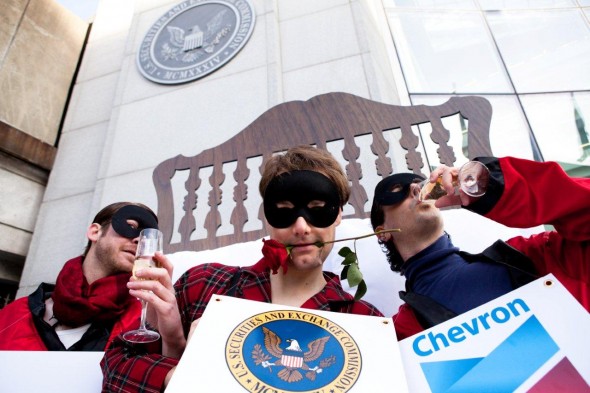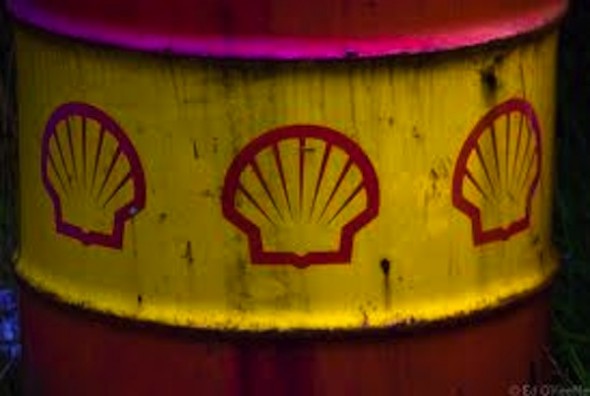Oil pollution, sabotage and security
I’m finally back at my desk, catching up with news and writing.
Oil watchdog Platform has published a briefing, Dirty Work, revealing Shell’s financial links to human rights abusers in Nigeria.The company spends hundreds of millions of dollars on security forces to protect its workers while the suffering of local communities continues unabated.
This briefing arrives a year after the publication of a U.N. report that slammed multinational oil companies, Shell in particular, for a half century of pollution in the Niger Delta. A recent Reuters article, A year on, Nigeria’s oil still poisons Ogoniland, describes the situation today:
The transparent hypocrisy of big oil

S.E.C. in bed with the oil companies? Oxfam event in front of S.E.C., February 10, 2012. Photo: Oxfam America
Ian Gary at Oxfam America has posted another excellent piece on the shameless hypocrisy of oil companies now pressuring the S.E.C. to water down parts of the 2010 Dodd-Frank financial reform legislation. (Read my blog post from yesterday for more background on this story.) Here’s the article cross-posted from Politics of Poverty:
The yawning gap between the transparency rhetoric of companies and the reality of their actions has never been more apparent than it is now.
The oil and gas industry loves to trumpet their support of international transparency initiatives and their tax contributions to the US government, but when a new law requires them to tell the public exactly how much gets paid to whom around the world, they bring out the lobbyists and lawyers.
Browse through the corporate social responsibility reports of the top oil and gas companies, and you’ll see them singing from the same transparency hymnbook. Chevron says it “believes that the disclosure of revenues received by governments and payments made by extractive industries to governments could lead to improved governance in resource-rich countries.”



